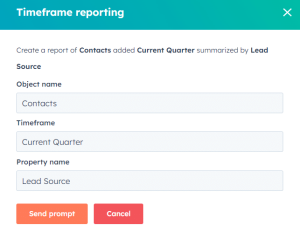It’s easy to become enticed by what appear to be SEO shortcuts. High organic rankings often equate to high profits, but earning high rankings is an arduous process: your technical SEO marks need to be clean, content needs to be outstanding, links need to be genuine, keywords need to be used but not stuffed, and then there’s RankBrain.
Effective, modern SEO is a long-term strategy, but many marketers want to see results faster. More often, many marketers’ managers want to see results faster.

Some SEO “shortcuts” are obviously black-hat, spammy techniques that everyone knows to avoid, others—multiple websites, for example—fall into a gray area. In some cases, there are good and justifiable reasons for managing multiple websites. In other cases, multiple sites are mistakenly used for SEO gains that don’t work or aren’t worth the effort.
Misconception 1: Multiple Websites Leads to Multiple Page-One Rankings
In some cases, managing multiple sites does lead to multiple page-one rankings. Zillow and Trulia are perfect examples of this possibility. In 2014, Zillow purchased Trulia, and today, the two websites dominate page-one rankings for most real estate keywords.
Of course, Trulia was an established site with tons of preexisting, quality content and incoming links. Short of purchasing an established site, ranking two sites on page one of the SERPs isn’t so simple.
A brand-new website begins with zero authority and zero content. Copying content from an existing site confuses search engines and hurts a site’s organic rankings—Google doesn’t know which version to rank, so duplicates don’t perform well. Any new content created will need to be high-quality and unique, and will need to earn enough incoming links to outrank other page-one results.

Earning multiple page-one rankings will not happen overnight simply by setting up another site. It doubles SEO efforts, requiring the same amount of time, money, and dedication it takes to earn page-one rankings for a primary site.
Unless a primary site is already in position one for the majority of targeted keywords, that effort is usually best spent optimizing a single site for position-one rankings—or position-zero featured snippets.
Misconception 2: Linking Between Multiple Websites Increases Domain Authority
Another common misconception is that rankings for a primary site can be improved by building a new site with lots of links back to the primary site. But linking a new site to an established site provides no SEO benefits.

SEO is no longer about quantity of incoming links. It’s all about quality of incoming links. A brand-new website with zero authority does not represent a quality link. While it won’t hurt rankings like a purchased link on a low-quality site, it won’t help either.
To pass any quality authority from a new site to a primary site, the new site will need plenty of earned links, doubling SEO effort. That time and effort is usually much better spent on a link-earning campaign for a primary site.
Misconception 3: Buying and Redirecting Expiring Domains Improves SEO
Somewhere between buying an established website and building a new website is buying expiring domains and redirecting those domains to your website.
Say a company owns bestcloudhosting.com and sees through a domain auction company that topcloudhosting.com is expiring and for sale. The site topcloudhosting.com has thousands of incoming links, so purchasing the expiring domain and redirecting it should pass all of that authority to bestcloudhosting.com, right?
Wrong. In fact, Google confirmed eight years ago that this isn’t the case. According to Matt Cutts:
The sort of stuff our systems would be designed to detect would be things like someone trying to buy expired domains or buying domains just for links.

Beyond being an ineffective means of earning links, buying expired or expiring domains and redirecting them can also be risky. If the purchased domain carries any Google penalties for spam or black-hat techniques, those penalties can be transferred to your site and damage existing rankings.
When Managing Multiple Websites Makes Sense
While managing multiple sites isn’t an easy way to shortcut SEO, there are some valid reasons to manage multiple sites.

- You offer multiple, unrelated products and want to isolate those products from each other. If a company operates a law office but also sells software that restaurants can use to offer online ordering for delivery, it would make sense to separate these offerings into individual websites.
- You’re launching a distinct brand that needs to be isolated from existing branding. If existing products are associated with seniors—but you’re launching new products that target teenagers—managing separate sites for the products may aid with content and site personalization.
- Your first site dominates position-one rankings for most or all important keywords, and you need a new means of growing traffic. In this scenario, optimizing multiple sites to earn more than one page-one ranking may generate more leads and sales.

Making the decision to add a second site or consolidate multiple sites into one are large, complicated projects that carry risks and should be carefully considered.
To help you make an informed decision, check out the newest addition to our SEO Best Practice Series: Multiple Web Properties and SEO. It breaks down all the pros and cons of both separate sites and site consolidation, and includes links to further reading as well as a handy flow chart that can be used to help make the best decision.
Digital & Social Articles on Business 2 Community(54)
Report Post







